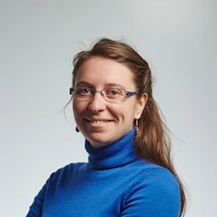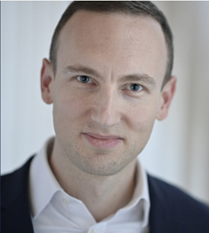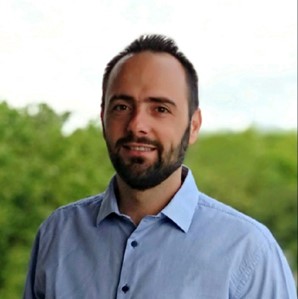MAKING AN IMPACT
MAKING AN IMPACT: The practitioners’ stream 2025
For everybody who uses modelling and analytics to help their organisation and their customers.
The Making an Impact stream is there to help you increase the impact of OR on real-world practical challenges – whether you are in a company, commercial consultancy, or in academia. Every session of the stream is designed to deliver value.
- Discover! new techniques, latest developments, collaboration opportunities, new ideas
- Share! Practical experiences, successes, challenges, tips for better outcomes
- Meet! Practitioners from across Europe and across sector, academic experts, software suppliers
- OR in action: lightning talks for a whirlwind tour of the OR world. Speakers include the great and the good, the early-career, and all points between. OR for tariffs and trade; tackling biodiversity loss; emergency response time; loading in-flight food; cross-border e-commerce; hull-cleaning for sea-going vessels; crop-breeding; medicines stockpiling; and lots more
- Speed networking: meet your peers in a friendly, informal way, to help build your network and begin to share experiences and ideas
- explore the many challenges of practical OR and ways of addressing them, with sessions on: matching the pace between IT and OR implementation; successful collaborations with academic partners; building convincing explanations for results and systems; persuading management and customers to invest in new OR projects and products; exploring what we are doing, as practitioners, when we are not actually modelling.
- tutorials, workshops and panels on specific new techniques, or approaches to add to your toolkit: system dynamics, digital twins, design thinking, systems thinking, transforming free text into numbers, developing KPIs for sustainable OR, and quantum optimization
- “From the frontline” case study sessions, spotlighting the ways other people are using OR, to stimulate your own practical ideas
FULL TIMETABLE
All sessions take place in LUBS Maurice Keyworth,
Executive Room 1.33 and (where there are two sessions in parallel) 1.32
| Monday 23 June | Tuesday 24 June | Wednesday 25 June | |||
A 8.30-10.00 | OR In Action: lightning talks for a whirlwind tour of our world Scroll down for full list of speakers and abstracts | |||||
B 10.30-12.00 | Speed networking A fast, friendly way to grow your circle of connections | Explainability for decision support tools: the what, why and how | Beyond the sums: how do we engage with customers and their problems | Lente Festina (aka not too fast, not too slow) Scroll down for full title and list of panelists | ||
C 12.30-14.00 | Exploring System Dynamics: Getting started and applications in consulting | At the heart of things: OR in the UK Government and National Health Service England | Getting to do the things we do: persuading leaders to invest in OR | |||
D 14.30-16.00 | Accreditation/certification for OR professionals: the what, why and how |
Quantum Optimization: The Killer Use Case for Quantum Computing | ||||
MA: OR in Action: lightning talks for a whirlwind tour of our OR world
At a conference like EURO, it is impossible to catch up with everything; and all too easy to stick to a single stream within your usual professional specialism. This session showcases some of the breadth of OR in action, with a set of 5-minute presentations handpicked to inspire, interest and extend your knowledge.
FULL LIST OF SPEAKERS AND ABSTRACTS
(NOTE THAT THESE ARE NOT IN ORDER OF PRESENTATION)
Tariffs, Trade, and OR – Impacts on Producers, Consumers, and Labor; Anna Nagurney
Abstract
Tariffs continue to be front page news and their impacts are reverberating globally. OR, and its portfolio of powerful methodologies, enable the quantitative assessment of the effects of this “policy tool” on consumer prices and product availability as well as on the profits of producers. In this lightning talk, I will highlight different types of tariffs and share what OR models of global supply chain networks reveal, including the impacts of tariffs on labor, a topic that merits further study and discussion.
Author
Anna Nagurney is the Eugene M. Isenberg Chair in Integrative Studies and the Director of the Virtual Center for Supernetworks at the Isenberg School of Management at UMass Amherst. She was the 2024 Blackett Lecturer.
Biodiversity loss and climate change: How systems thinking is helping the UK government plan their response; Gary Preece
Abstract
Biodiversity loss and climate change continue to raise the stakes for environmental policy across the globe. Defra’s Systems Research Programme provides a dedicated analytical team tackling some of the UK Government’s most complex and intractable environmental issues. This talk will describe how we have used systems thinking to analyse and develop policy to reduce greenhouse gas emissions and restore nature. It will also draw out lessons from our experience on how to maximise the impact of systems thinking for policy development in complex areas.
Author
Dr. Gary Preece is Head of Systems, Innovation and Futures at the UK Government’s Department for Environment, Food and Rural Affairs (Defra). He is a member of the Government Operational Research Service and a Fellow of the Operational Research Society.
Chaos to Control: Evolutionary AI in Job Scheduling; Abimbola Falodu
Abstract
Field service scheduling is often messy, inefficient, and slow to adapt. We built an AI-powered solution that changes that using evolutionary algorithms (think digital survival of the fittest). Our system creates smarter, and more flexible schedules by adapting to job priority, real-time changes, and geographic constraints with ease. Service provider Thames Laboratories swapped their manual approach to scheduling with our solution and saw immediate gains in reduced travel times, lower fuel costs, balanced workloads, and quicker callouts. This session demonstrates how we bring control to the scheduling chaos resulting in a streamlined, automated operation yielding real results to the organisation.
Author
Abimbola Falodu is a Data Scientist with a background in chemical engineering. Abimbola developed an AI-driven workforce scheduling system now used by Thames Laboratories, blending data science with an optimisation mindset to improve efficiency in real-world operations.
Increased demand, faster response: using OR to improve Duisberg’s emergency ambulance service planning; Jutta Geldermann
Abstract
Reliable and efficient emergency medical services are crucial for public safety. Strategically positioning ambulance stations is essential to ensure rapid responses to frequent destinations, such as hospitals, care facilities, industrial zones, and residential neighbourhoods.
Due to the significant increase in emergency service callouts in recent years, it is necessary to reassess where available ambulances should be stationed. The planning process must ensure compliance with prescribed response times, such as maintaining an 8-minute arrival time in densely populated areas. We showcase our collaboration with the Fire Department of Duisburg, a German city with approximately 500,000 residents, focusing on optimizing EMS to improve emergency response times and overall service effectiveness.
Author
Prof. Dr. Jutta Geldermann holds the Chair of Production Management at the University of Duisburg-Essen. Her research focuses on sustainable production, logistics, decision support, and LCA. She leads GOR and edits the EURO Journal on Decision Processes.
From Crime Scene to Algorithm: How Real Investigators Shaped Tools for Real Results; Fredy Troncoso
Abstract
How can you detect a criminal network when you only know one or two suspects? This talk presents the development of models designed to support real investigations in Chile, built in collaboration with prosecutors and police. What started as a practical need turned into concrete tools now used to prioritize cases, reduce false positives, and dismantle criminal groups. By combining optimization and network analysis, these models bring AI into the hands of teams who had never worked with algorithms — and now use them as a key part of their daily operations.
Author
Dr. Fredy Troncoso is a professor and researcher at Universidad del Bío-Bío, Chile. He develops optimization and data-driven tools to support prosecutors, police, and other public sector institutions in solving complex, real-world problems through practical, scalable solutions.
Mathemagics Forecasting Spells on Heating Networks; Slawomir Pietrasz
Abstract
Have you ever wondered whether you should heat water in your electric boiler or on your gas cooker?
In our team at CSAI – ENGIE Lab CRIGEN, we learn from data and compute operating strategies that save energy and reduce CO2 emissions. We happened to apply AI (Artificial Intelligence) and OR (Operation Research) tools to help operate a district heating and cooling (DHC) network. After forecasting thermal demand over the next 15 days, we determined the most sustainable heat production plan.
We have specialized in making decision-supporting tools. Would you like to have one?
Author
Nurtured by Polish folk songs, Slawomir Pietrasz has developed a passion for magic, mathematics and music. As a Senior Project Manager at ENGIE, he combines Operation Research with Artificial Intelligence to optimize energy networks. Besides swimming he lectures statistical learning.
Breeding Resilience: Bridging Data and Farming to Overcome Climate Uncertainty; Paul Deuker
Abstract
Imagine agriculture where crop yields are only 10% of those in Europe due to drought, pests, erratic weather and lack of technology. Traditional crop breeding-optimized for single traits like yield-leaves farmers vulnerable when conditions change wildly. How can we design crops that can thrive and survive in such chaos?
Drawing on real challenges in the Global South, this talk will present a dynamic decision-making tool that links crop breeding with cropping strategies. By balancing resilience (ensuring a base crop) and productivity (taking advantage of good seasons), the approach reduces economic risk for farmers and provides greater food security.
Author
Paul Deuker is a Ph.D. researcher at Tilburg University’s Zero Hunger Lab, where they are working with Bioversity International to improve agriculture using OR. Paul has a degree in mathematics from TU-Munich and has previously worked at the startup bluesolve.
Resolving the curse of poor data quality; Alena Otto
Abstract
Experts can validate inaccurate data, but their time is limited. To make the most of their input, we can use optimization to develop an interview policy that dynamically states queries to the expert about specific data entries. The expert can then correct or validate them within the available time budget. This talk will show how we’ve used this expert-guided data validation to yield substantial cost savings.
Author
Alena Otto holds the Professorship in Advanced Analytics in Manufacturing Management at the Technical University of Munich. Her research focuses on developing quantitative, data-driven optimization and artificial intelligence methods to support decision-making in manufacturing. It received several prestigious academic and industry awards.
Optimizing the tailoring of the Dutch medicines stockpiling policy; Marie Baratto
Abstract
Medicine shortages pose global health and economic challenges, costing, for example, the Netherlands over €150 million annually. Stockpiling is a widely endorsed response, yet current policies often apply uniform stock levels to all medicines, ignoring differences in price, disruption risk, and supplier availability. This “one-size-fits-all” approach is inefficient. Tailored stockpiling can improve resilience and reduce costs but adds policy complexity. To support practical policy design, we propose a method that uses policy trees and MILP to optimize stockpile levels across medicine categories while limiting complexity, aiming to support a policy expected to be implemented in the Dutch pharmaceutical supply chain in the coming years.
Author
Marie Baratto is a Belgian mathematician specialising in optimization methods and mathematical modelling. She is currently a postdoctoral researcher at Rotterdam School of Management.
Hot, fresh, and all eaten up – optimising loading for in-flight food; Craig Poku
Abstract
A significant portion of global food production ends up as waste. For airlines, balancing profit from fresh food sales with minimizing waste and stockouts is critical. We developed a solution for a low-cost airline to optimize fresh food loading using a demand forecaster based on past sales and a stock optimizer to determine ideal quantities. Offline testing showed a 13% (£689k) profit increase, alongside a 9% reduction in food waste and a 10% decrease in stockouts. Live tests confirmed these improvements, highlighting enhanced profitability and sustainability through better demand forecasting and supply chain efficiency.
Author
Craig Poku holds a PhD in Atmospheric Sciences from the University of Leeds. Following a career in atmospheric science research, he now works as a Data Science Consultant for Datasparq, an ethical AI consultancy firm based in London.
How Trendyol used intelligent bundling for better logistics outcomes: insights into practical modelling; Meltem Sanisoğlu
Abstract
Shipping multiple packages separately drives up costs — especially in cross-border e-commerce. In this talk, we’ll share how a data-driven approach combines machine learning and optimization to bundle shipments intelligently without compromising customer satisfaction. By predicting delivery risks and managing business constraints such as customs limits, we reduce logistics costs and improve international delivery times. This session offers actionable insights into modeling trade-offs and building scalable, real-world optimization solutions — tailored for practitioners tackling complex logistics problems.
Author
Meltem Sanisoğlu is a Product Team Lead at Trendyol with a PhD in Management and 10 years experience in product development. She focuses on warehouse operations and enjoys traveling, skiing, and playing the piano in her free time.
Reducing the environmental footprint of sea-going vessels by optimising hull-cleaning schedules; Samuel Ward
Abstract
Biofouling is the buildup of microorganisms, plants and barnacles, causing increased vessel drag and carrying invasive species. We developed a novel data-driven tool to monitor the additional fuel consumption caused by biofouling without the need for expensive underwater surveys. Through explainable AI techniques, we quantify the effect of hull cleaning, allowing us to find an optimal schedule. This work has been deployed as a webtool for our industrial partner so that their fleet managers can interact with the predictions. As a result of our recommendations, we predict a reduction of 600,000 kg of fuel over the next four years.
Author
Samuel Ward is a third-year PhD student at the University of Southampton with a research focus on bilevel optimisation and mathematical programs with complementary constraints and their application in machine learning.
Routing and charging EVs for BT on-site services; Jiyin Liu
Abstract
Electric Vehicles (EV) have been largely introduced in BT fleet for their on-site services. Because of much fewer charging stations available for EVs than petrol stations for conventional vehicles, EV routes generated using existing methods need additional detours when charging is needed. Worrying about running out of electricity, drivers also tend to have unnecessary charges at charging station on their way. Working with the company, we analysed the constrained routing with partial charging problem and developed an effective method to generate routes with scheduled charging activities. Applying the method has supported the effective management of charging cost and chargers utilisation.
Author
Jiyin Liu is Professor of Operations Management at Loughborough Business School. He works in the operations analytics area and has published over 100 papers in leading journals. He collaborated with logistics, manufacturing, and service companies to help improve their operations.
This is always a hugely popular session at EURO conferences – intense, eye-opening and fun.
Some of the presentations are designed for this session only, others are abbreviated versions of full talks appearing elsewhere in the conference. Kick off your conference with this session, so you can catch up with the speaker later on, and maybe go to see their full talk and other items in the stream.
Lente Festina – how to “match the pace” with IT, Business and Users in OR-based projects
Operations Research projects within large organizations are often deeply intertwined with business processes, an end-user flow and existing IT systems. Achieving and sustaining a well-paced, adaptive development cycle is critical to delivering real impact. It is generally said that Agile principles—quick feedback loops, iterative delivery, and early learning—can help reduce risk and adapt to emerging insights. However, applying these principles in the context of OR is not straightforward. Success depends on effective coordination across users, analysts, OR and non-OR developers, suppliers, and consultants. Striking the right pace is a constant balancing act: too slow, and the project risks losing operational momentum and stakeholder engagement; too fast, and it may overlook key constraints, user needs, or systemic complexity—ultimately undermining long-term value.
Panelists
This session offers an open discussion with four experienced panelists who have led OR projects across their organizations and will share practical insights on how to “keep the pace” while staying aligned with agile values. Panelist bios and further information are available in the Making an Impact Stream section of the conference website.
Laura Houlley is R&D Project Manager at Air Liquide, where she leads digital projects optimizing the bulk liquid supply chain. Her role involves not only managing internal R&D efforts but, critically, coordinating interfaces with operations and the internal entities responsible for industrializing these tools. Her background includes designing schedule optimizers and machine learning forecasts, as well as leading product development in supply chain solutions.

Sławomir Pietrasz is a Research Engineer and Project Coordinator at ENGIE’s Lab Crigen. His expertise consists in translating operational challenges into mathematical models and developing practical decision-support tools. Sławomir’s approach emphasizes the value of iterative development and quickly demonstrating tangible results, reflecting a commitment to helping projects find the right pace to align with business needs and ensure timely impact.

George Dikas serves as a Head of Data Science at Tesco. In this role, he collaborates with senior technical and non-technical stakeholders to define and implement business and technology strategies centered around data science, artificial intelligence, and data-driven decision-making. Under his leadership, the teams have successfully designed and developed platforms and core capabilities in scheduling, simulation, and forecasting, maximizing business value and reducing the time required to deliver AI solutions in new business domains. His expertise and focus span the entire supply chain and decision horizons, including transportation, warehousing, supply chain network design, commodities, store operations, and workforce.

The Making an Impact Team
The Making an Impact stream has been brought together by practitioners from across the UK and Europe, led by the EURO Practitioners Forum. The coordinating team includes:
Siôn Cave: Analytics and Foresight Consultant, DAS
- Susanne Heipcke: Team Leader, Xpress Optimization Modelling and Interfaces, FICO
- Anne Liret: Principal Researcher, British Telecommunications
- John Medhurst: Director, Larrainzar Consulting Solutions Ltd
- Sofiane Oussedik: Technical Leader, Data Science and AI Tools & Assistants – EMEA, IBM; Chair of the Practitioners’ Forum
- Mithu Norris: Head of Government OR Service Central Management Unit
- Jane Parkin: Independent Consultant; Associate Faculty Leeds University Business School
- Michele Quattrone: R&D Computational and Data Science Team, Air Liquide
- Maurizio Tomasella: Chancellor’s Fellow in Management Science, University of Edinburgh; Editor of Impact magazine
- Sander van Aken: OR Engineer, FlixBus
Chaired by Ruth Kaufman, Past Chair, EURO Practitioners Forum



